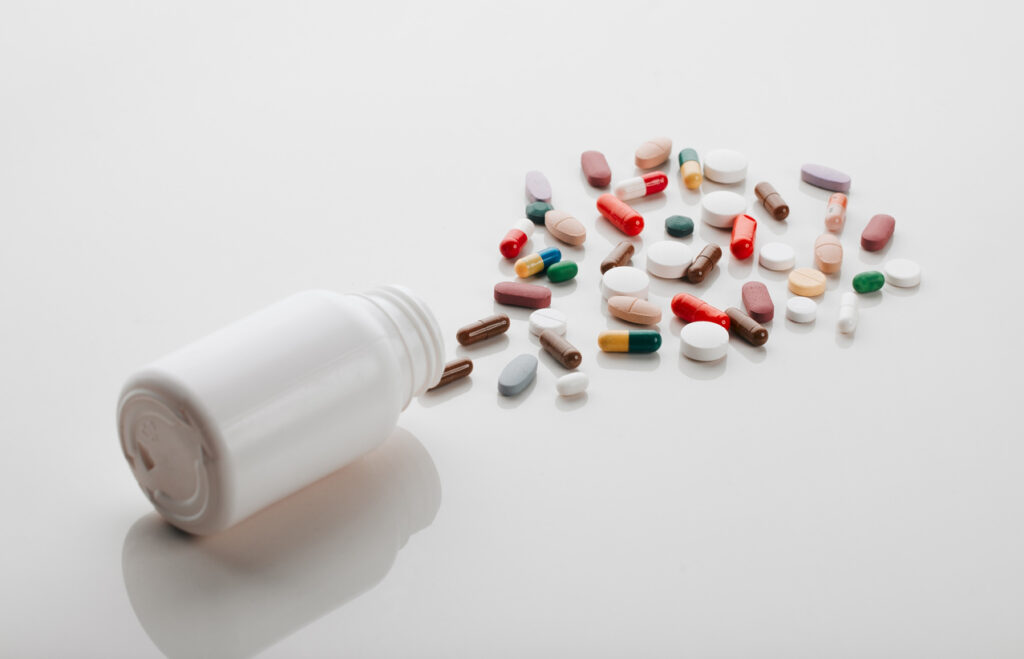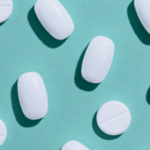It’s been a decade since many Australians first became familiar with the term “peptides” during the Essendon Football Club and Cronulla Sharks doping scandals. And while peptides might not be making as many headlines these days, their use for purported benefits like muscle growth, injury recovery and anti-ageing hasn’t slowed down thanks to widespread social media endorsements. Peptides have become increasingly popular amongst professional and amateur athletes, bodybuilders and gymgoers, without strong evidence of advantages or even safety. Here’s what you need to know about peptides in Australia.
What are peptides?
A peptide is a chain of amino acids similar to but shorter than the proteins that make up the structure of our bodies (e.g. our nails, hair, muscles and skin). Peptides are made by some of the cells in your body and influence a variety of bodily processes, like supporting the immune system, stimulating growth and repair, and regulating metabolism. Some peptides are powerful regulators of muscle growth, and some synthetic drugs have similar actions in the body.
The growth-promoting and tissue-repair effects of some peptides have led to their use for performance or image enhancement. Common peptides used for these purposes include human growth hormone (HGH), insulin-like growth factor-1 (IGF-1), human chorionic gonadotrophin (HCG) and adrenocorticotrophin (ACTH). Peptides are often used in combination with anabolic steroids and as a part of “post-cycle therapy” to maintain gains while cycling off steroids.
Are peptides like steroids?
Peptides are naturally occurring or synthetically produced amino acid chains, while steroids are synthetic hormones. While peptides and steroids are both used to enhance performance and muscle growth, they have significant differences in how they work.

The effects of peptides
There is not enough evidence to support the use of peptides to improve athletic performance. One review found that while human growth hormone increases muscle mass, it may not improve strength, it can worsen exercise capacity and increase your risk of experiencing swelling, fatigue, carpal tunnel syndrome, joint pain and sweating.
Are peptides safe?
We don’t fully know the safety of peptides because we don’t have long-term studies in humans.
But we do know that high levels of human growth hormone over a long period can produce irreversible acromegaly, the complications of which include arthritis, sleep apnoea, diabetes, high blood pressure, heart disease and often premature death.
Even smaller doses can lead to complications such as heart disease and diabetes. Injecting peptides can also come with risks like infection; developing abscesses; accidentally hitting bones, nerves or veins; and blood borne viruses if injecting equipment is shared.
The effects of peptides wear off if you stop taking them, so any performance or image gains you achieve while using them will go away when you stop.
It might be easy to buy peptides online, but that doesn’t make them safe. Doses and ingredients could be different to what’s on the label, and it could be contaminated.
Are peptides legal in Australia?
In Australia, the use of peptides and synthetic drugs that increase growth hormone levels (known as growth hormone secretagogues) is only permitted for legitimate medical purposes as prescribed by a doctor or specialist. However, these drugs are not approved for performance and image enhancement purposes, and it is illegal for non-medical personnel to import these substances into Australia.
There is a long list of peptides that are prohibited by the World Anti-Doping Agency (WADA).
















